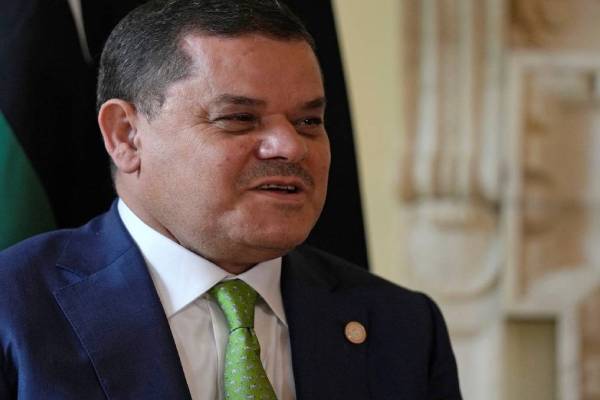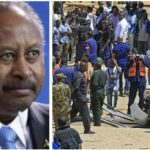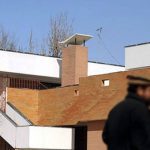Libyan Prime Minister Abdulhamid al-Dbeibah escaped uninjured after shots were fired at his vehicle early Thursday, according to a source close to him, who described it as an obvious murder attempt in the midst of fierce factional squabbling for control of the government.
The source, who requested anonymity, said Dbeibah was returning home when shots were fired from another vehicle, which fled, and the event was brought to the prosecutor general for inquiry.
In recent weeks, armed forces have mobilised additional troops and weapons in the city, raising fears that the political turmoil would spark bloodshed.
Since the NATO-backed rebellion against Muammar Gaddafi in 2011, Libya has seen little peace or stability, and it split in 2014 between fighting factions in the east and west.
Dbeibah was appointed head of the United Nations-backed Government of National Unity (GNU) in March, with the goal of uniting the country’s split institutions and overseeing the run-up to a December election as part of a peace process.
After the election process collapsed due to arguments over the regulations, rival factions have been jockeying for power, including over the legality of Dbeibah’s own presidential campaign after he swore not to run.
The parliament, which largely backed eastern forces during the civil war, has declared the GNU null and void, and will vote on a new prime minister on Thursday in order to form a new government.
In an address this week, Dbeibah stated that he would only relinquish power after an election, while the UN’s Libya envoy and Western governments have stated that they continue to recognize the GNU.
After amending the country’s temporary constitution with another political body this week, the parliament announced that no elections would be held this year, disappointing many Libyans who had registered to vote.
The parliament’s decision to appoint a new prime minister might lead to a reversion to the situation before Dbeibah’s unity government was established, with rival administrations vying for control of Libya from separate cities.
However, observers believe that this will not necessarily result in a return to civil conflict.













